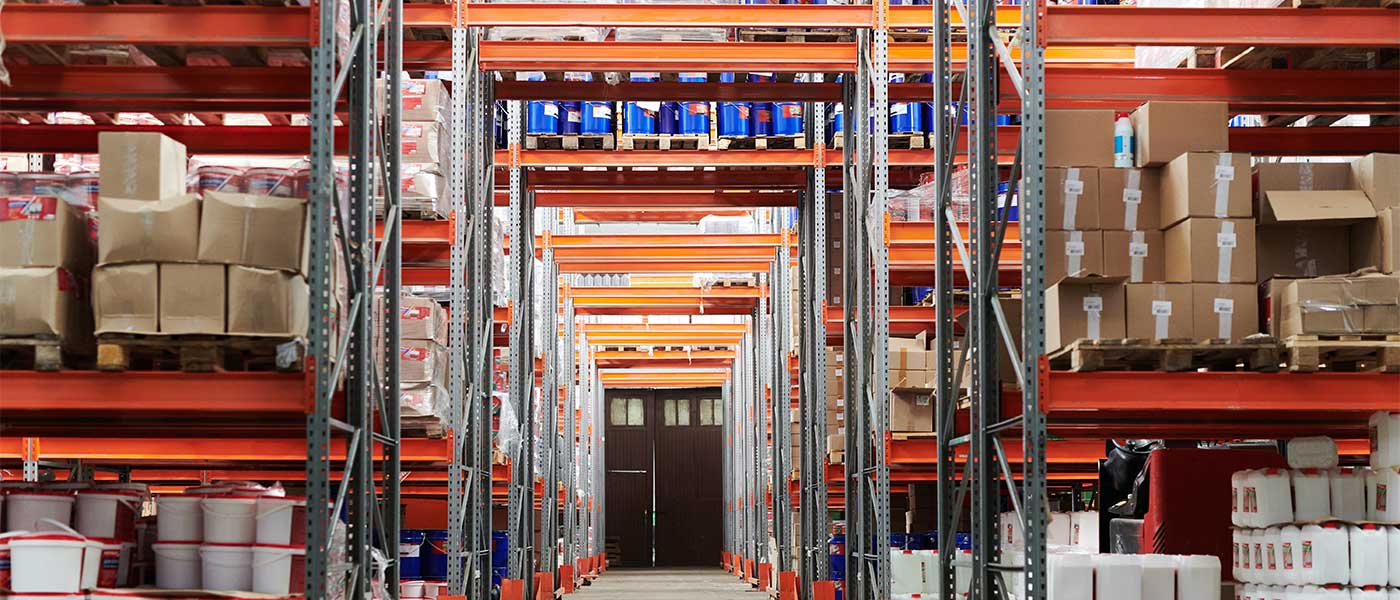One of the most important decisions you will make as an entrepreneur when setting up your e-commerce business will be choosing your logistics service provider (LSP), and usually, it’s between postal vs courier service. Fulfillment is a major part of e-commerce, and since the customer isn’t in physical contact with the items they are buying, that means shipping is a top priority when it comes to the fulfillment process.
So, figuring out your shipping strategy is a building block for new e-commerce businesses, and it should be treated with the utmost care.
With e-commerce being on a steady rise year by year, more and more LSP startups are popping up, in hopes of finding their place in such a growing industry. This is a double-edged sword for businesses. On the one hand, businesses are flooded with options when it comes to LSPs. Established providers, as well as newcomers, are all looking for your business, so at least you won’t be limited to a single, mediocre, partner for your logistics, and you’re bound to find something that suits you somewhere.
That can be just the problem, however. The downside of having so many options to choose from is that it can be very overwhelming for a new business to figure out exactly which LSP they want to work with. You can easily get lost and end up choosing a less valuable option out of panic or convenience if you don’t know the space well.
The fact that choosing your LSP can be a double edged-sword means that it’s an area where you can find a competitive advantage. If you make sure that you’re maximizing your LSP choice, while so many other businesses will go for suboptimal LSPs, then you can be sure to secure an advantage over your competitors when it comes to logistics.
While you don’t need to be an expert about LSPs, a bit of knowledge can really help you determine what you’re looking for in an LSP. It may not be enough to help you choose one, but it’s a start.
LSPs can be separated into two main categories: courier services and postal services. When figuring out what you want out of an LSP, choosing between a courier service and a postal service will be extremely helpful to you. It’ll narrow down the options you have and make picking your logistics partner much easier. So, let’s get into Delivery 101 and compare the two — postal vs courier.
Postal Services: Pros and Cons

Postal services are large shipping companies that are usually run by national governments. An example of a postal service is SingPost, which is run by the government of Singapore.
The biggest advantage postal services have as LSPs is that they are publicly funded and operated, which means that they are more affordable than privately run LSPs.
Postal services are reliable partners: you know what you’re getting when you work with them, and they’ve probably been around forever, and aren’t going to suddenly disappear or go out of business as a startup would. Partnering with a postal service is a very secure and safe choice.
International shipping is also quite easy with postal services. National postal services will ship parcels and hand them to partnered postal services in other countries, making for an easy shipping process. When it comes to range, postal services often have the widest range and will manage to reach remote locations, but courier services are catching up to this quickly.
As much as they have some reliable upsides when it comes to cost and security, postal services are also quite reliable when it comes to their weaknesses. Since they are public services and typically aren’t for-profit businesses, they will be less interested in competing over your business with other LSPs. This isn’t a problem in and of itself, but it leads to some issues.
First, it means that they will be very unlikely to treat a partnership with you as a true “partnership”, where both parties work together and grow mutually. Partnering with postal services is simply streamlining your access to their service. It doesn’t place you in a special relationship with them.
Lack of competitiveness also means that postal services will be slower to innovate. Postal services are more concerned with providing a functional service than providing a top-of-the-line service, so if you’re looking for cutting-edge solutions to your delivery problems, you most likely won’t find them with postal services.
Postal services will generally be a bit slower than courier services when it comes to shipping times, again due to their lesser competitiveness (although most do offer an express delivery option). Parcel tracking is also generally less precise and less developed for postal services.
Here’s a summary of the pros of postal services we’ve discussed:
- Cost
- Security
- Convenience
- International shipping
- Shipping range
And the cons:
- Slow innovation
- More service providers and less business “partners”
- Slower shipping times
- Worse customer service and tracking
- Standardized service (no personalization)
Courier Services: Pros and Cons
Courier services are private businesses that offer logistics services. Unlike postal services, which are almost exclusively end-to-end, courier services vary in what they offer. Some specialize in specific parts of the fulfillment process while others offer end-to-end delivery services. For example, Dragon Courier is a Thailand-based end-to-end private courier with international shipping options, while Roadbull is specialized in last-mile delivery in Singapore.
When working with private courier companies, the first thing to keep in mind is that you will be paying a premium. These companies are primarily for-profit, and just that will bump prices up for you. However, there are other reasons why these companies charge a premium, and they are typically worth the extra cost.
First, these companies are often young startups thirsty for partners. Unlike postal services, partnering with the right startup courier service could mean much more than just having access to their services. As you and your LSP grow together, you will get to know each other and will be able to work together very smoothly. Private partners are supposed to give you a personalized service, which is something that public service could never do. This personalized service will also scale up as both you and your partner grow.
Being for-profit means that these businesses are also more focused on competition. If there are so many private couriers out there, they each have to find an area where they have an edge over their peers to attract you. Competitiveness can lead to many desirable things for you and your business. For example, you could manage to get a special deal from one courier service to secure your business. Postal services will rarely offer aggressive partnership deals with you unless the scale of your business is extremely large.
Furthermore, you’ll have access to cutting-edge technology. Startups are known to invest in marketing and R&D, and courier startups are no different. They’re trying to find any edge they can over their competitors. The best startups will be working to optimize every aspect of their service. If you partner with them, you’ll benefit from a very polished service.
With that comes top-of-the-line customer service and tracking options. Private courier services have larger budgets for CS than public postal services, which generally means higher quality customer service for customers. These couriers often offer much more developed tracking options than postal services, who typically offer the bare minimum.
One massive edge courier services have over postal services is that they’re much more versatile and much more adaptable to your needs. Typically, postal services offer an all-in-one service that will get the job done from end to end. But sometimes you need to focus your efforts on a specific part of the delivery process. Let’s say you have no problems with fulfillment until your last mile. If you’re working with a postal service, you won’t be able to focus on refining that last mile.
However, you can use a private courier solely for your last mile, allowing a postal service to do most of the work, and handing things over to your partnered last-mile specialized courier to finish the job. Courier services give you the option to really min-max specific areas of your shipping process.
Couriers don’t only have upsides, however. There are a few areas where courier services fall short compared to postal services. The first is international shipping. Postal services work together across borders, making for a very easy and reliable international shipping process. Depending on the courier you choose, some may be more or less equipped for international shipping. Maybe they don’t cover international shipping at all; maybe they are operating internationally but only in a limited number of countries, or maybe they have other private couriers they are partnered with that help them with international shipping.
There’s a lot of variances when it comes to international shipping with courier services. The good news is that courier services are quickly catching up with postal services in this area because international shipping is growing and courier services can’t afford to stay behind.
Just like international shipping, shipping range is a point of weakness for courier services. Couriers are great when it comes to high-traffic urban centers, but the more remote the location gets, the less convenient (and more expensive) courier services become. But, once again, courier services have been improving in this area progressively, even if they aren’t quite where postal services are yet.
Here are the pros of courier services:
- More versatile and adaptable to your needs
- More aggressive innovation (especially technological)
- Better customer service and tracking
- Faster shipping times
- Constantly looking to improve their service
- Potential strong partners for your business
- Offer personalized service
And the cons:
- Higher costs for premium services
- More risky partners due to being privately funded
- Can be limited when it comes to international shipping
- Smaller shipping range
At LOCAD, one of the areas we specialize in is helping you find the right LSP for your needs to deliver your items to the waiting customer, with minimal stress. Get started with us here.











